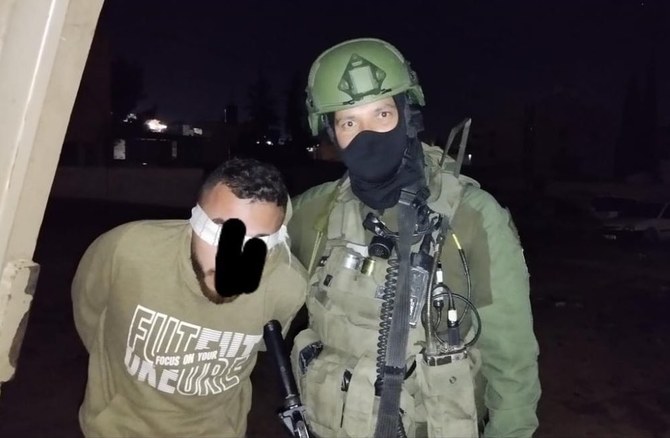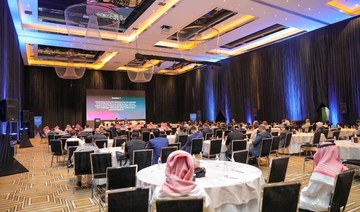LONDON: The deputy mayor of Be’er Sheva in southern Israel has posted a series of photographs on Facebook showing himself with handcuffed and blindfolded Palestinian detainees.
The images were taken while Shimon Tobol was doing military service in the occupied West Bank from Oct. 7 until the end of January this year. They have been published on his personal account over the course of several months.
Tobol, who heads the local faction of the national-social party Gesher, has served as one of the deputies to Be’er Sheva Mayor Rubik Danilovich for the past two and a half years, according to Israeli newspaper Haaretz which first published the news.
His Facebook account is filled with footage humiliating the Palestinian detainees, accompanied by mocking captions.
In one post, an image of a blindfolded bearded man crouching on the floor is captioned: “They say the bigger the beard, the higher the rank. This time, he had a really big beard. No apologies, no mercy, no stopping. We have started speaking fluent Arabic.”
Another photo, in which Tobol is pictured next to one of the detainees, features the caption: “When the customer asks to take a selfie. A nation of cowards. The nation of Israel lives.”
Other examples include Tobol leading prisoners and describing Palestinians as Nazis, framing events as acts of revenge for the Holocaust.
“The people of Israel live. Every Nazi knew that his day would come. Our father, our king, avenge before our eyes the spilled blood of your servants,” he wrote.
Tobol’s personal profile features several such posts.
The Be’er Sheva municipality did not comment on the images but told Haaretz: “Tobol’s actions were not done as part of his work at the municipality.”
An Israeli military spokesperson said the army prohibited photography of detainees for security reasons and that such behavior was “not in line with IDF values.”
Tobol is one of many Israeli soldiers who have posted footage of themselves abusing Palestinian detainees.
A BBC analysis last week revealed Israeli soldiers were continuing to post videos of abuse against Palestinian detainees despite a military pledge that action would be taken against the perpetrators.
The analysis identified at least 45 photos and videos showing Palestinian prisoners being abused and humiliated.
Experts said the footage could breach international law and amount to war crimes.




























